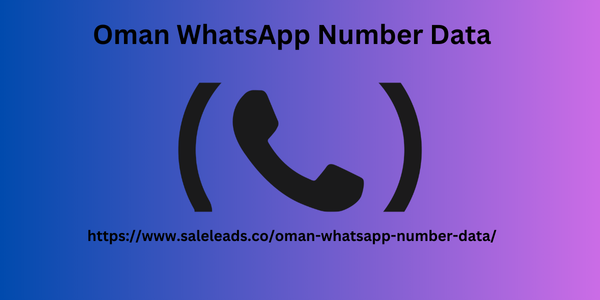|
|
In the age of digital communication, understanding data privacy is essential for users of platforms like WhatsApp, particularly in Oman. As WhatsApp continues to be a primary means of communication, questions arise about whether users are adequately informed about data collection practices.
WhatsApp’s Data Collection Practices
WhatsApp, like many other digital services, collects a number of data from its users. This includes personal information, such as phone numbers, contact lists, chat histories, and usage data. WhatsApp's privacy policy outlines these Oman WhatsApp Number Data practices, detailing how user data is collected, used, and shared. However, the clarity and accessibility of this information can vary, impacting users' understanding.
User Awareness and Education
Individual use might show various sensitizations in Oman about data collecting practices. WhatsApp makes sure the privacy policy is accessible, for example, within its application. However, several end-users will not read the document or comprehend its actual meaning. There are chances of misunderstanding because of the complicated language and jargon being used. Therefore, unless users remain oblivious to the extent and their implications, there is certain data collection.

Regulatory Oversight
The TRA in Oman, for one, can help promote data privacy and consumer rights. However, the efficiency of the regulatory measures adopted to make sure that users are informed about the collection of their personal information may vary. While the TRA underlines data protection, educating users mostly remains a corporate social responsibility of companies. This presents a gap where users are not given complete information regarding their data rights.
Implications for Users
The lack of awareness about data collection can have grave implications for users. This unawareness of what data is being collected and how it will be used may cause the users to inadvertently expose themselves to privacy risks. Second, this may lead to distrust in the platform, particularly when users feel that their information is not being taken care of.
Conclusion
In a nutshell, though WhatsApp informs users about its data collection practices, many users in Oman may not be adequately informed. Communication about the privacy policy is inconsistently effective, and regulatory oversight plays a limited role in enhancing user awareness. As digital platforms continue to evolve, it is important that users and regulatory bodies advocate for clearer communication and greater transparency in data collection practices.
|
|